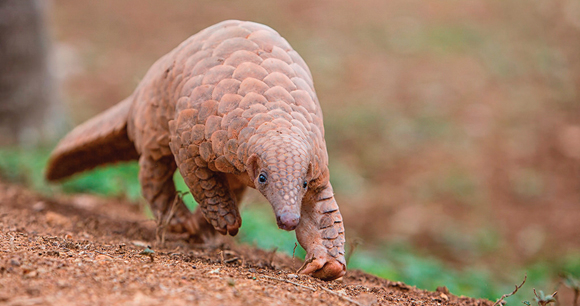
Washington, DC—In a strong bipartisan showing, more than 60 members of Congress sent a letter this week to the World Health Organization, the World Organisation for Animal Health, and the Food and Agriculture Organization of the United Nations, urging them to shut down live wildlife markets and ban international trade of live wildlife not intended for conservation purposes. The letter was led by Reps. Mike Quigley (D-IL) and Mike McCaul (R-TX), and Sens. Cory Booker (D-NJ) and Lindsey Graham (R-SC).
“As we face the current global pandemic, it's imperative to address the root causes, not only its impacts,” said Cathy Liss, president of the Animal Welfare Institute. “According to the Centers for Disease Control and Prevention, three of every four new or emerging infectious diseases are spread from animals to people. Increased interaction, stemming in part from an accelerating trade in wildlife, creates opportunities for virus transmission. If we hope to prevent the next pandemic, we must end wildlife exploitation.”
The United States is one of the world’s top importers of wildlife, responsible for an estimated 20% of the global wildlife market. A significant proportion of this multibillion-dollar industry is legal and unregulated.
Live wild animals are traded domestically and internationally as pets, food, and for use in laboratories and zoos, while dead wild animals and their parts are traded for food, traditional medicines, trinkets, trophies, clothing, and other uses. Approximately 18%—nearly 5,600 species—of the planet’s known terrestrial vertebrates are part of this trade, and an additional 3,000+ species are at risk of entering the market due to increased human demand.
Incidents of emerging zoonotic diseases (an infection or disease that can spread from animals to humans) have increased significantly since 1940, a trend that strongly correlates with accelerating habitat destruction and precipitous declines in biodiversity. These patterns of natural resource exploitation, including the wildlife trade, have brought humans into much closer contact with wildlife, increasing the odds of pathogen transmission. In just the past 40 years, the worst pandemics and epidemics—including SARS, Ebola, HIV/AIDS, avian flu, and swine flu—have all originated with the trade and consumption of animals amid the destruction of their habitat. Public health experts believe COVID-19 was first transmitted to humans at a live animal market.
The senators and representatives concluded: “It is clear that to protect human health, these close and sustained interactions with wildlife must stop.”
Margie Fishman, (202) 446-2128, [email protected]